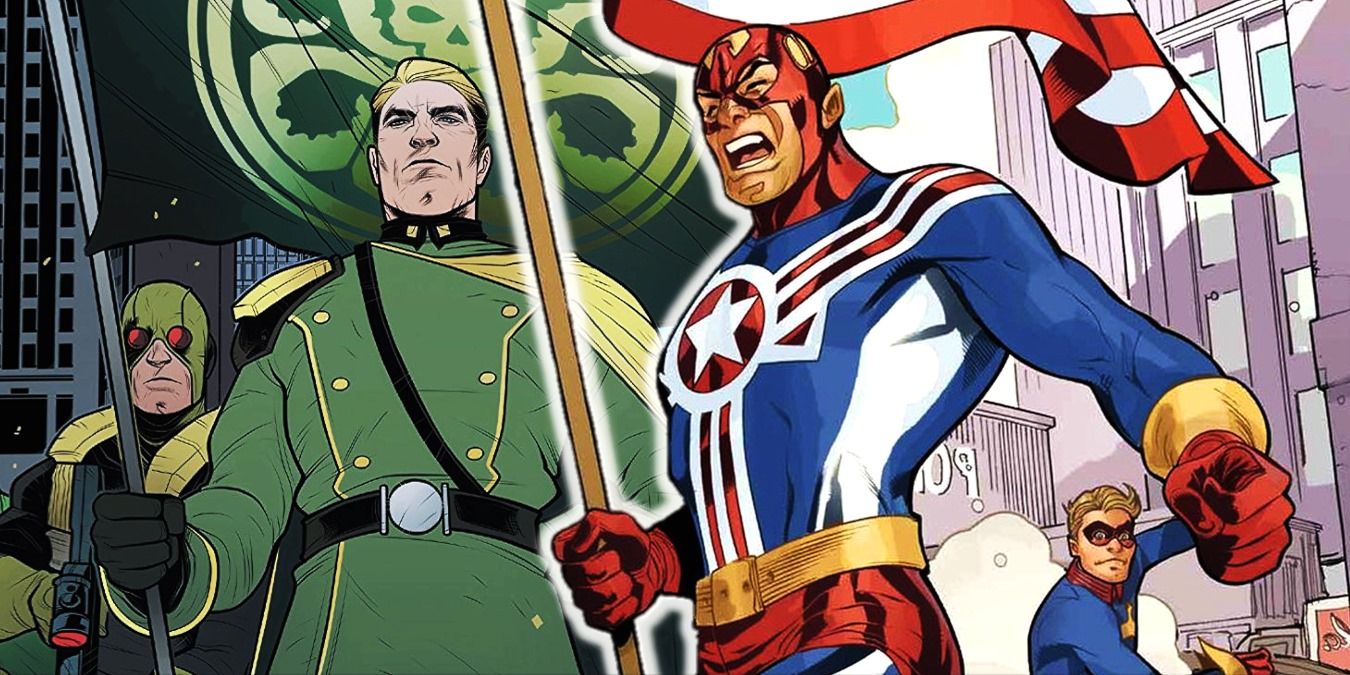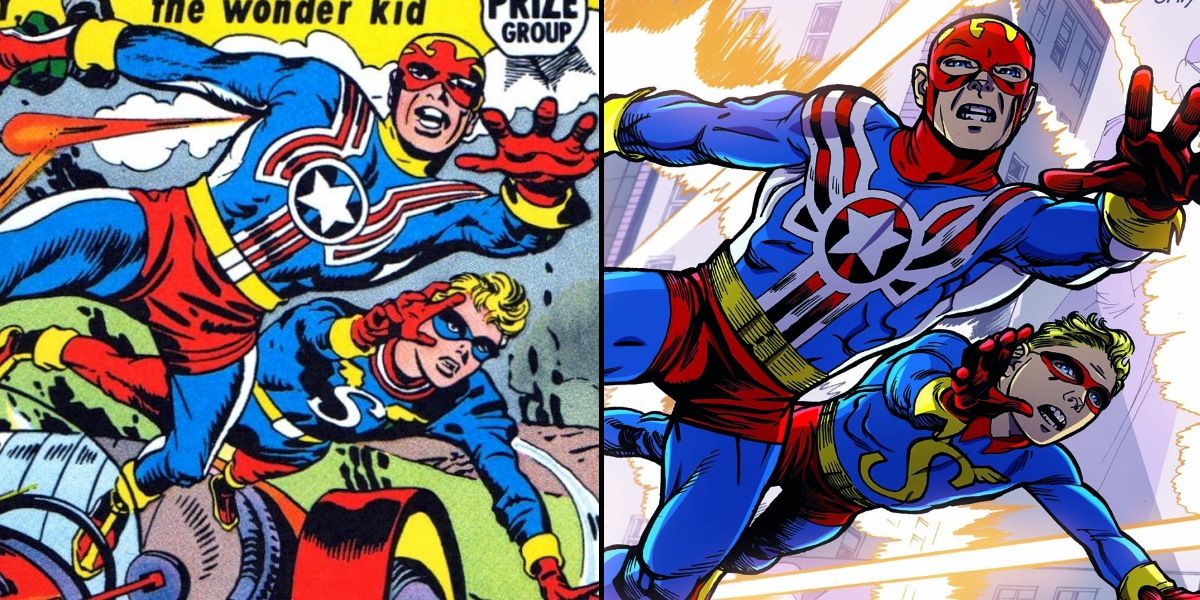If the patriotic comic book fans out there are disappointed that Captain America has strayed from his values, we have good news: the Fighting American is back to save the day. The hero created by comic icons Joe Simon and Jack Kirby as something of shot across the bow of Marvel Comics is returning, thanks to Titan Comics. And with Captain America's slide into supervillainy as part of Marvel's epic Secret Empire event gaining speed... the gloves have officially come off.
The UK-based publisher has released a handful of covers and quotes regarding the upcoming relaunch of the hero and his sidekick, looking to return his unique brand of political satire to the spotlight. It's a little ironic that a British comic publisher would be firing shots at Marvel over their own treatment of an American icon like Steve Rogers, but what can you expect from a hero named the "Fighting American"? It may all be in fun, but Titan is making it clear that patriotism is alive and well in their coming hero - even if you can't say the same about Captain America.
Fans of the original character can look forward to his relaunch come October 11th, 2017, in a new series from writer Gordon Rennie and artist Duke Mighten expected to carry the original, satirical tone of the book into our more modern era. Just how much that "modern" era will include satirizing or commentary on Marvel's decision to turn Captain American into a Hydra villain isn't clear, but judging by the artwork Tweeted out by Titan in honor of the Fourth of July... well, take a look for yourself:
In all likelihood, the artwork, like the comic itself, should be taken as the satire that it is rather than an aggressive 'attack' or criticism of either Secret Empire or Marvel in general. But for those familiar with the history of Fighting American's creation know that this feud is long past the half-century mark by this point. On the surface, the debut of a superhero wearing blue and red, marked with a star, and throwing around a shield would appear to be a knockoff - an attempt to steal or siphon off the success of Marvel's Captain America. What makes this a unique case is that Joe Simon and Jack Kirby created both.
After launching Captain America for Marvel (then Timely Comics) in 1941, Joe and Jack went on to continue their history-making careers. But when Marvel decided to "relaunch" Cap in 1954 with a new creative team and "fresh" direction, Joe and Jack - whether out of anger, offense, or creative inspiration - launched the "Fighting American" to show what Captain America stories were all about. In the end, the pair's motives mattered less than the book's success... but their shift to satirizing superhero comics, and the political theater of Washington at the time is what stuck. Stuck so well, in fact, that when Rob Liefeld was kicked off another Cap reboot in the 1990s, he acquired the rights to Fighting American to play out the stories he never got to tell at Marvel.
There's no bad blood to speak of with Titan's upcoming version (at least there wasn't), the latest in a line of comics publishers to acquire, update, and release their own version of Simon and Kirby's original hero. And nobody will argue that the publisher was better off leaving the modern parallels alone. If Joe and Jack brought the Fighting American into being in response to Marvel's chosen direction for Captain America, well, expect the publisher's decision to make Steve Rogers into a Nazi-allied fascist to have some repercussions and reverberations around the comic book world.
All joking aside, interested comic fans can rest easy knowing that no matter what Secret Empire's final chapters might reveal about Steve Rogers, the hero created in his image is still just as patriotic and heroic as he ever was. And if Titan's Fighting American chooses Marvel's current slate as a topic worth promoting, dissecting, or even criticizing, we're willing to bet that it's all good news to Marvel. Secret Empire was intended to make waves - if those waves carry all the way across the pond, then all the better.
Source: Titan Comics, THR



